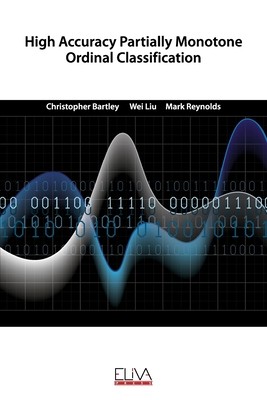
- We will send in 10–14 business days.
- Author: Wei Liu
- Publisher: Eliva Press
- ISBN-10: 1636480144
- ISBN-13: 9781636480145
- Format: 15.2 x 22.9 x 1 cm, minkšti viršeliai
- Language: English
- SAVE -10% with code: EXTRA
Reviews
Description
The problem with many machine learning classification algorithms is that their high level of accuracy is achieved at the cost of model comprehensibility, and with a consequent loss of justifiability: their mechanism cannot be shown to be reasonable because it cannot be explained. This has hindered their acceptance in sensitive domains, leading to growing demand for 'explainable AI'. In addition, the EU's recent GDPR legislation has elevated the issue to a legal requirement. If domain knowledge regarding nondecreasing (monotone) relationships could be incorporated into high performance classification algorithms without compromising their performance, the resulting increase in comprehensibility may allow them to surpass 'black box' barriers to acceptance and unlock their high accuracy for wider use.
This book aims for 'complete' monotone classification algorithms, that: (a) are partially monotone (allow nonmonotone features); (b) guarantee monotonicity globally; (c) retain high accuracy; and (d) are scalable to large data sets. To achieve these aims, the book contains:
- Explanation of the principles of ordinal classification, monotonicity and partial orders.
- Extensive review of the literature and available monotone algorithms.
- Several techniques for monotone tree-based ensembles (and Random Forest in particular).
- Novel constraint generation for monotone Support Vector Machines.
- Extension of cone-based dominance relations to partial monotonicity, for classification and pairwise and partial-order based problems.
A panel of seventeen partially monotone datasets is used throughout the book to allow comparative empirical accuracy and performance of the many approaches discussed. It is hoped this book encourages and enables practitioners to include knowledge of monotonicity in their models when appropriate, for the sake of accuracy, simplicity, and interpretability.
EXTRA 10 % discount with code: EXTRA
The promotion ends in 22d.21:19:16
The discount code is valid when purchasing from 10 €. Discounts do not stack.
- Author: Wei Liu
- Publisher: Eliva Press
- ISBN-10: 1636480144
- ISBN-13: 9781636480145
- Format: 15.2 x 22.9 x 1 cm, minkšti viršeliai
- Language: English English
The problem with many machine learning classification algorithms is that their high level of accuracy is achieved at the cost of model comprehensibility, and with a consequent loss of justifiability: their mechanism cannot be shown to be reasonable because it cannot be explained. This has hindered their acceptance in sensitive domains, leading to growing demand for 'explainable AI'. In addition, the EU's recent GDPR legislation has elevated the issue to a legal requirement. If domain knowledge regarding nondecreasing (monotone) relationships could be incorporated into high performance classification algorithms without compromising their performance, the resulting increase in comprehensibility may allow them to surpass 'black box' barriers to acceptance and unlock their high accuracy for wider use.
This book aims for 'complete' monotone classification algorithms, that: (a) are partially monotone (allow nonmonotone features); (b) guarantee monotonicity globally; (c) retain high accuracy; and (d) are scalable to large data sets. To achieve these aims, the book contains:
- Explanation of the principles of ordinal classification, monotonicity and partial orders.
- Extensive review of the literature and available monotone algorithms.
- Several techniques for monotone tree-based ensembles (and Random Forest in particular).
- Novel constraint generation for monotone Support Vector Machines.
- Extension of cone-based dominance relations to partial monotonicity, for classification and pairwise and partial-order based problems.
A panel of seventeen partially monotone datasets is used throughout the book to allow comparative empirical accuracy and performance of the many approaches discussed. It is hoped this book encourages and enables practitioners to include knowledge of monotonicity in their models when appropriate, for the sake of accuracy, simplicity, and interpretability.


Reviews